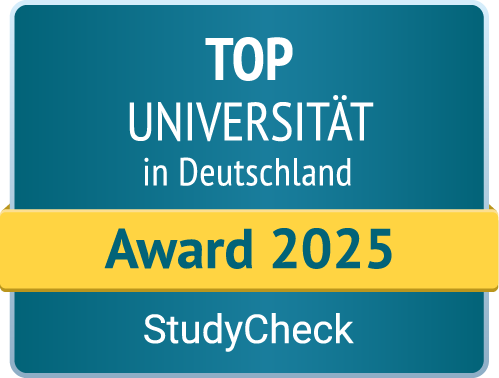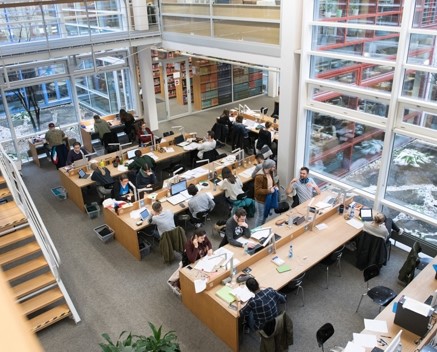Everything on one campus
Engineering, Computer Science, Human Medicine and Psychology, Clinics, Science Park and Science City

The study objective is a broad education in the engineering sciences combined with competencies from medicine and biology. The degree, which is both professionally qualifying and research-related, enables graduates to solve biomedical engineering problems. The degree programme thus focuses on teaching basic engineering knowledge, system and methodological competences, as well as the ability to work and communicate in an interdisciplinary and cross-domain manner.
The knowledge acquired during the course is put into practice in projects and the bachelor's thesis with a clear reference to clinical and medical research.
Bachelor of Science (BSc)
180
6

This graphic is for simplified visualisation. You can find detailed information on our current study curriculum
Engineering, Computer Science, Human Medicine and Psychology, Clinics, Science Park and Science City
The aim of the programme is to provide a broad training; (akad.: ) education in Engineering combined with skills from Medicine and Biology. The professionally qualifying and research-related degree enables students to solve biomedical engineering problems. For this reason, our study/degree programme focuses on teaching basic engineering knowledge, system and methodological skills, as well as the ability to work and communicate in an interdisciplinary and cross-domain manner.
The Fundamentals of Mathematics and Physics, Electrical Engineering and Information Technology, Biomedical Engineering and Human Biology are taught in the modules of the first semesters. From the 4th semester onwards, the content of the research focus of biomedical engineering at Ulm University is taught. In addition, central skills such as programming and project management are taught, as well as additive transferable skills to acquire interdisciplinary competences and language proficiency. What has been learnt is practically applied in projects and the bachelor's thesis with reference to clinical and medical research.
On the Biomedical Engineering bachelor's programme, you will be trained as an engineer. It is based on a broad training; (akad.: ) education, particularly in Medical Engineering, supplemented by Fundamentals of Medicine such as Physiology, Anatomy and Pathology. Mathematics and Natural Sciences fundamentals are taught as well as applied programming, ethics and project management. Optional specialisations allow students to develop their own personal profile.
The bachelor's programme is mainly offered in German, but with additional English elements. A master's programme continues the biomedical engineering course.
The bachelor's programme leads to a Bachelor of Science (B.Sc.) degree in Biomedical Engineering, which is considered a professional qualification. The degree is also the ideal preparation for a research-oriented Master's degree programme in Biomedical Engineering.
The Biomedical Engineering bachelor's programme at Ulm University is not with restricted admission (with unrestricted admission). The application deadline is the end of September.

Our researchers in Medicine and Engineering incorporate their current research topics into the degree programme
Biomedical Engineering encompasses many specialisms. One great way to broaden your horizons in the discipline is to study abroad. Ulm University students can apply for one or two semesters at numerous universities, throughout Europe as part of the ERASMUS programme or even outside Europe. Internships and theses at other universities are also possible.
Ulm University has exchange agreements with over 100 universities in 26 countries. Partner universities for Engineering can be found in Europe, Canada, Australia and the USA.
Would you like to go abroad?
For more information, please contact the International Office or the Engineering mobility officer.
Information e.g. on financial support programmes and scholarships; (Erasmus: grant) is available from the
International Office

Studying at the Ulm University
Our closing ceremony at Münsterplatz
A Brief Introduction to Ulm and Ulm University
Technology is playing an increasingly important role in medical research and care. Networking of medical devices, automation of processes, personalisation of treatments, new types of sensors and procedures: all of these topics require multidisciplinary biomedical engineers to drive these developments forward, test them and transfer them into pre-clinical and clinical applications. The medtech sector is an important and rapidly growing industry in Germany and the demand for well-trained specialists is constantly very high.
This means that the field of activity is very broad. Here are a few examples:
Welcome to the most liveable city in Germany. In Albert Einstein's birthplace, scientific research, leisure, top employers and culture come together in a unique way. Top locations and events such as the Ulmer Zelt, Nabada or the Donaufest attract visitors to the quaint streets. Here you feel at home!
Copyright: City of Ulm